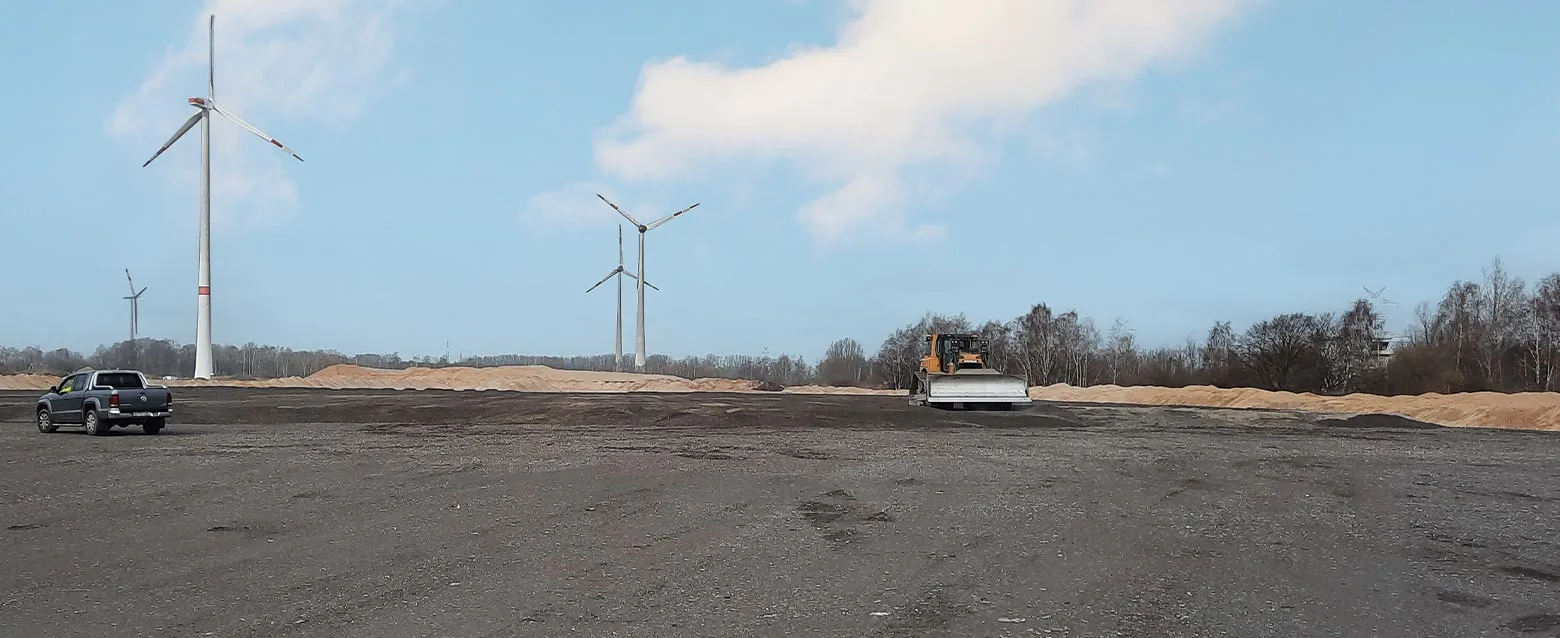Search
Company locations
The whole picture – with just a single click. Find out here where our branches are located, what services they offer and how to contact them.
REMONDIS Group locations
Discover the world of REMONDIS with its approx. 900 branches and associated companies in over 30 countries across Europe, Africa, Asia and Australia.
GRANOVA upgrades commercial area in Bremen
Unused areas are rare in Germany. And they are becoming fewer every day, because an average of another 52 hectares of land is needed nationwide every day for housing and transportation projects (Source: Destatis). A development that makes it necessary to handle existing open spaces with care and to manage their use both intelligently and sustainably.
Sustainability decisive
A joint project on a site in Bremen shows how responsible land use can be combined with climate protection and conservation of natural resources. Located in the immediate vicinity of a commercial and industrial area, the site in the Hanseatic city is ideally suited for commercial purposes. However, its development was not possible because the property, which covers about 1 hectare, was characterized by marshy and thus unstable subsoil. New development could only take place if the brownfield site was first stabilised. This was precisely the aim of the project, which relied mainly on GRANOVA.
In order for the previously unusable area to be connected to the industrial district, in 2021 and 2022 the MAV – an associated REMEX company – delivered large contingents of GRANOVA incinerator bottom ash (IBA) to Bremen. As part of the subsoil stabilisation, the material was incorporated into the spongy soil using caterpillars and rollers. Step by step, a load-bearing ground was created.
GRANOVA is ideally suited for improving existing ground. The quality-controlled construction material offers consistent quality in terms of grain size and composition and is easy to handle and compact. Beyond its ideal suitability for soil consolidation, GRANOVA offers clear environmental benefits. Had the ground of the Bremen site been improved conventionally, this would have required the excavation of large volumes of natural aggregates. Mineral raw material sources, however, are limited and supply shortages are already imminent for some types of aggregates. In addition, the mining of minerals would have further driven landscape consumption.
To ensure sufficient stability, around 300,000 t of GRANOVA were utilised in the large-scale project in the Hanseatic city.

For the climate and environmentally friendly transport to the north, the shipment was made by water. Since the start and destination are well connected to the waterway network, the GRANOVA batches could be loaded onto cargo ships directly in Lünen and transported via shipping canals and the Weser to a port near the construction site. Transport by truck was thus only necessary for the last, short section of the journey.
Impressive ecological benefits
What the use GRANOVA means for the environment? By recovering the recycled aggregates from waste incineration, around 170,000 m³ of natural material such as gravel, sand or grit have been preserved. In addition, reclamation of the brownfield site brings benefits in terms of landscape conservation. Furthermore, processing and subsequent recycling of incinerator bottom ash saves valuable landfill space. Last but not least, the climate benefits as well. Metals are recovered when bottom ash is processed into branded construction material. In terms of the GRANOVA volume used in Bremen, this has resulted in a saving of 60,000 tons of CO2. All in all, this is a project with a lighthouse character and proof that secondary aggregates are ideally suited to making construction projects sustainable.




